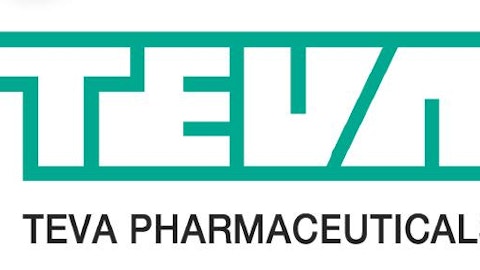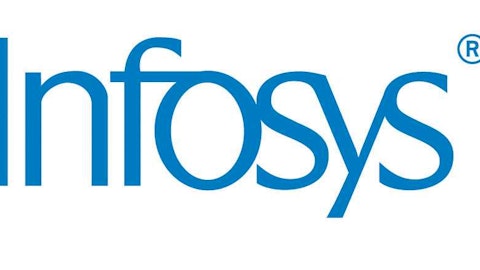In late April, biotechnology firm Opko Health Inc. (NYSE:OPK) announced that it would acquire Israeli pharmaceutical start-up PROLOR Biotech Inc (NYSEMKT:PBTH) in a stock-for-stock deal that currently offers a substantial arbitrage premium. Investors have every right to be interested in this deal. In addition to some exciting operational synergies, it offers one of the clearest merger arbitrage opportunities seen in the past 12 months.

A closer look at PROLOR and Opko
PROLOR and Opko Health Inc. (NYSE:OPK) have many functional differences. Among other things, PROLOR is styled as a start-up and lacks a market-ready product. Although some of its compounds are well on their way to FDA approval, it should not be mistaken for an established biotechnology or pharmaceutical firm. In contrast, Opko’s development pipeline is more mature and provides its balance sheet with at least some revenue.
PROLOR remains a much smaller firm than Opko. Its market capitalization of just over $410 million is paltry relative to Opko’s $2.4 billion. In 2012, the company had no substantial revenue and suffered an after-tax loss of nearly $20 million due to development and payroll expenses. In contrast, Opko took in around $70 million and posted a loss of about $57 million.
PROLOR Biotech Inc (NYSEMKT:PBTH) retains about $30 million of its initial cash funding and holds no debt on its books. Opko Health Inc. (NYSE:OPK) has a manageable debt load of $220 million, and an adequate but shrinking cash reserve of $180 million. Unfortunately, PROLOR’s minus $15 million cash flow figure hints that the company will soon require additional funding in the event the proposed merger falls through.
How the deal is structured
This merger is structured as a fairly traditional stock-for-stock deal. Under the terms of the proposal, Opko will provide current PROLOR shareholders with .9951 share of Opko Health Inc. (NYSE:OPK) for every PROLOR share that they hold. At Opko’s current stock price of about $7.10 per share, this values each PROLOR share at roughly $7.06. Relative to PROLOR’s current price of around $6.53 per share, this makes for an arbitrage premium of about 8.1%. The entire transaction is valued at just under $500 million. If the various complications in play do not derail or delay it, it should close by the end of 2013.
Problems with Teva (NYSE:TEVA) and other complications
One of this deal’s major complications centers around Dr. Phillip Frost, Opko’s chairman. Frost is also the chairman of Teva Pharmaceutical , an Israeli drug-making giant that could derive long-term benefit from the Opko-PROLOR merger. Teva is a $34 billion company in need of growth after a 4% decline in revenue last year. However, analysts are predicting about a 10% increase in EPS for Q2 this year. Teva develops, manufactures, and markets generic and specialized pharmaceutical products. Additionally, Frost owns a significant number of shares in PROLOR Biotech Inc (NYSEMKT:PBTH). As such, he has a clear conflict of interest in the deal.
While this is not necessarily illegal or even improper, the appearance of impropriety has led to many legal challenges to the deal. In addition, other legal challenges have argued that analysts’ target prices of up to $12 for PROLOR suggest that the company is woefully undervalued. These challenges echo critics’ complaints that PROLOR’s pipeline should be given more time to develop on its own. Such complaints run counter to supporters’ arguments that PROLOR Biotech Inc (NYSEMKT:PBTH) needs support and synergy from Opko in order to be successful.
Risks to the arbitrage trade
Most market-watchers agree that this deal’s persistent arbitrage premium is the result of investors’ skepticism that it will go through as planned. With so many hurdles in place, investors who buy into PROLOR Biotech Inc (NYSEMKT:PBTH) on the expectation of pocketing an 8% premium are making a somewhat risky gamble on the transaction’s outcome. Of course, the benefits of this gamble could be worth the risk.
On the other hand, investors who wait too long to pull the trigger on PROLOR risk losing the opportunity to realize a significant arbitrage profit. If the legal issues surrounding the deal are resolved favorably, it is likely that the persistent gap between the two firms’ stock prices will close. Those who buy in after this occurs are liable to see slim or nonexistent gains. On the other hand, investors who hold PROLOR are sure to be burned by any significant delays in the deal’s completion.
Jump in or stay away?
Given the high stakes that surround this transaction, investors may be justifiably nervous about taking a position on either side of the fence. However, this deal offers more than just an arbitrage opportunity. Opko Health Inc. (NYSE:OPK) and PROLOR have compatible pipelines, and their combination could produce substantial synergies that might ultimately save the combined company millions of dollars per year.
In addition, Opko has important licensing and marketing experience that the smaller PROLOR Biotech Inc (NYSEMKT:PBTH)lacks. Assuming that PROLOR’s signature long-release human growth hormone treatment passes its Phase III clinical trial and becomes marketable by the middle of the decade, such capabilities will prove to be crucial. As such, speculative investors with a longer time horizon have plenty to like about this deal.
In sum, the proposed merger between Opko Health Inc. (NYSE:OPK) and PROLOR offers a substantial arbitrage opportunity of 8% or more. At the same time, it carries plenty of risk and has been subject to numerous legal challenges. Since the deal could establish game-changing synergies within the combined company, it may entice longer-term investors as well. However, the associated risk demands that all investors do their own research before investing in either company.
Mike Thiessen has no position in any stocks mentioned. The Motley Fool has no position in any of the stocks mentioned.
The article This Acquisition Offers a Major Arbitrage Opportunity, But Conditions Apply originally appeared on Fool.com.
Copyright © 1995 – 2013 The Motley Fool, LLC. All rights reserved. The Motley Fool has a disclosure policy.



